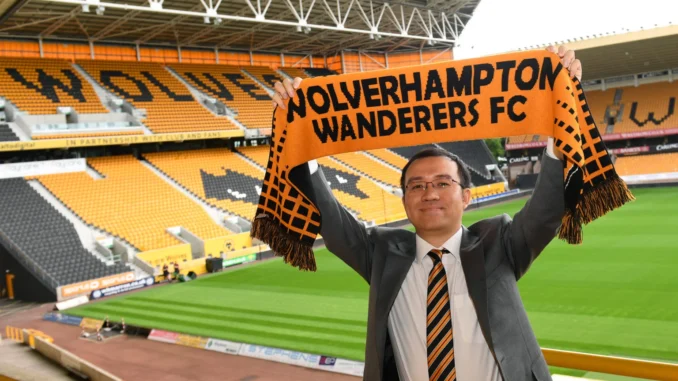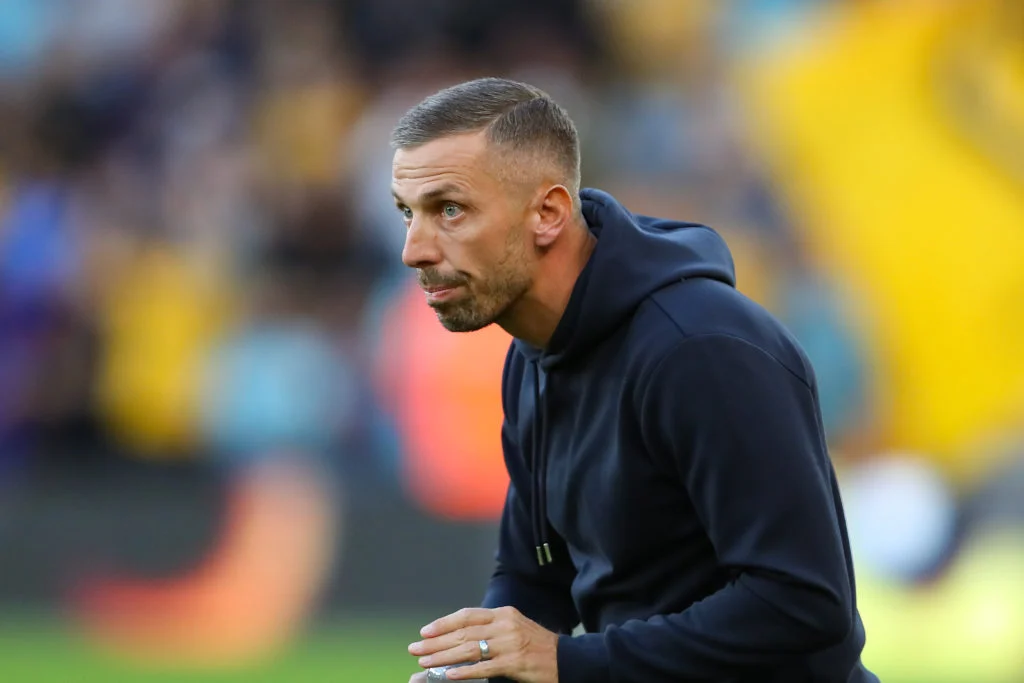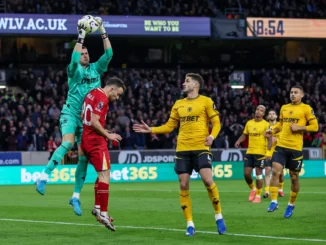
After two summers of player sales that saw Wolves rake in £113m more than they spent in the transfer market, fans could be forgiven for questioning the long-term commitment of the owners, Fosun.
The investment group – chaired by Chinese trio Guo Guangchang, Liang Xinjun and Wang Qunbin – bought Wolves for £45m in 2016.
That was the height of China’s investment in football, where the state incentivised its billionaires to pump money into the game.

However, China has since pivoted to encouraging investment in their domestic league and, more recently, has scaled back its emphasis on football altogether.
Wolves enjoyed great success in the early days of Fosun’s reign, earning promotion from the Championship in 2018 and immediately overseeing successive 7th-place finishes in the Premier League.
But several seasons of mid-table anonymity have followed and they have taken just one point from their opening six games this term.
That has led to questions over the future of the manager, although Fosun continue to have faith in Gary O’Neil’s style of play.
Now, club chairman Jeff Shi has taken the dramatic step of being interviewed by The Telegraph with a view to settling anxieties about the club’s ownership.
To explore Shi’s plans in depth, TBR Football spoke exclusively to Liverpool University football finance lecturer, Price of Football author, and industry insider Kieran Maguire.
Wolves’ PSR position
Naturally given Wolves’ many sales over the last two seasons – plus their £67m loss in the last published financial year – there have been questions about Wolves PSR position.
Under the Premier League’s Profit and Sustainability Rules, Wolves are allowed to lose no more than £105m over a rolling three-year period, although costs such as infrastructure and youth investment are exempt.
However, in his interview, Shi has insisted that not only is PSR currently a non-issue at Molineux but also that is has never been close to becoming one.
“Looking at the club’s finances, while PSR is a concern, it is not a huge one,” said Maguire.
“There was no rush to sell players before 30th June, which does indicate that there is a degree of leeway.
“Jeff Shi’s comments therefore have some validity. At the same time, there does appear to be a disconnect between the expectations of the fanbase and the strategy implemented by Fosun.
“This could be due to Mendes acting as a de-facto advisor for the club, focusing on finding clubs for his players at destinations other than Wolves.
“That has been very lucrative for the club in terms of the excitement that those players have brought and the money that they have recouped.”
Jeff Shi’s ambitious global plans
Another interesting claim made by Shi is that Wolves are the Premier League club with the fourth-biggest social media following in Fosun’s homeland of China.
Premier League clubs are highly valued by private investors in the modern era because of a belief that they can tap into and monetise their overseas followings to better effect through new technologies.
But Maguire is highly sceptical.
“It’s a strange comment,” he observed.
“Given that social media interest and converting it into cash has proven to be a challenge for practically every football club.
“The person that unlocks that particular box in terms of monetisation will become very rich in due course.
“It is difficult to see how Wolves could be more popular than the two Manchester clubs, Chelsea, Arsenal, Liverpool and Spurs given their high-profile success.
“Shi might also be being slightly disingenuous in that, even if Wolves are the fourth most popular club in China, there will likely be a huge gulf between third and fourth place.
“The top three clubs are likely to be Chelsea, Man United and Liverpool given their global status in football.”
Minority investment and Wolves’ enterprise value
The burning question is whether Fosun committed to Wolves for the long term, and Shi has claimed that they very much are.
However, he also confirmed what has been an open secret for some time, that Wolves are seeking minority investment.
The Premier League acquisitions ecosystem is saturated at present, with the Everton takeover not yet complete and with West Ham, Brentford and Tottenham all seeking minority investment.
So how much are Wolves worth in a buyer’s market? Maguire is optimistic, suggesting that minority investment could value them even almost twice what PIF paid for Newcastle in 2021.
“There has certainly been an increase in terms of club valuations in the post-Newcastle era.
“PIF acquiring Newcastle for £305m is increasingly looking like a fantastic bargain.
“That deal was completed at two times the club’s revenue. Chelsea went for five times revenue. Jim Ratcliffe’s stake in Man United went for seven times revenue.
“While you can say that a premium will always be paid for those clubs because they have less risk of relegation, clubs like Wolves – for whom relegation at the start of the season is always a more significant risk – it has an impact on what investors are likely to be pay.
“Even so, I think you would be looking at a three times revenue marker, which would value Wolves at about £500m.
“In terms of minority sales, I think an investor would be looking for a degree of influence, so I think we’re looking at around 10-15 per cent.

“If that is the case, it’s going to be in the region of £50-80m.
“But just because that is being paid, it doesn’t necessarily mean it is being paid to Wolves.
“If fresh shares are issued, the club receive the money. But there is nothing to stop Fosun from selling a stake privately and, if that is the case, it simply goes into the bank account of Fosun as opposed to the club itself.”
For More Stories Like This, Please Check Our Home Page



Be the first to comment